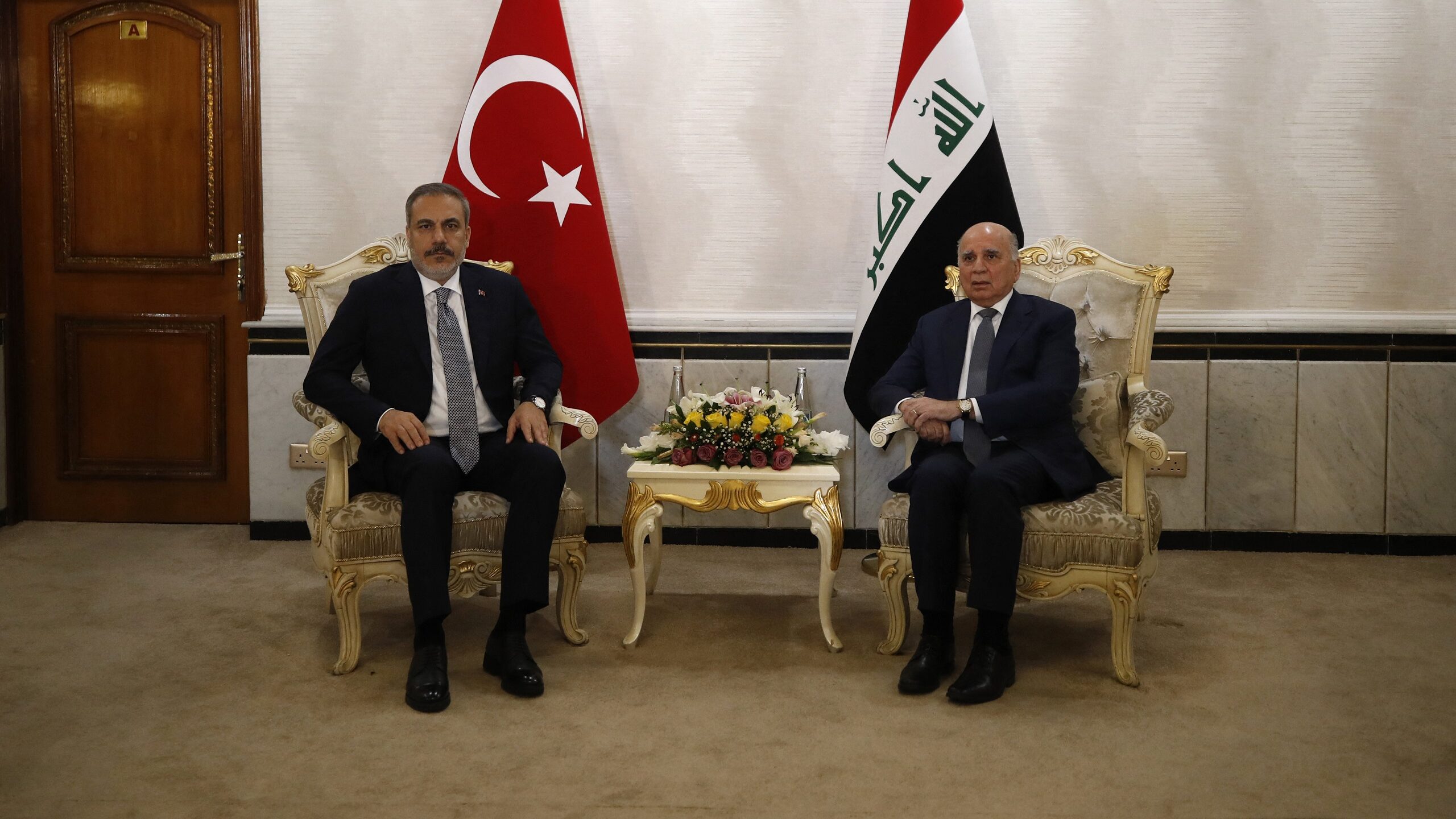Turkey Seeks Iraqi Support Against Kurdish Forces: An Inside Look at Regional Tensions
Turkey has outposts in northern Iraq fighting the PKK, the Kurdistan Workers' Party, and the Turkish foreign minister visited Baghdad to ask Iraq to designate the PKK a terrorist organization
Turkish Foreign Minister Hakan Fidan was in Baghdad this week to prepare for an upcoming visit on an unspecified date by Turkish President Recep Tayyip Erdoğan.
One of Fidan’s primary requests of his Iraqi counterpart, Fuad Hussein, was for Iraq to officially designate the PKK, or Kurdistan Workers’ Party, as a terrorist organization.
According to Turkish sources, six Turkish soldiers were killed in fighting with the PKK in northern Iraq on August 9 and 10. The soldiers were part of Operation Claw Lock, a Turkish cross-border operation launched in April 2022 against the PKK.
Turkey’s ground forces maintain 40 military outposts in northern Iraq, and its air force regularly pummels suspected PKK targets. Early this year, some 2,000 to 3,000 Turkish troops were reportedly stationed in northern Iraq, along with another 8,000 in Syria.
The PKK is an organization of ethnic Kurds from Turkey who began fighting for independence in 1984 and then moderated their demands in the 1990s, saying they wanted political autonomy for Kurds in Turkey’s southeast.
Roughly 14 million ethnic Kurds live in Turkey, some 18% of the country’s population. An additional 25 million to 30 million ethnic Kurds live in Syria, Iraq, and Iran. The PKK is just one of many Kurdish organizations and armed groups.
Historically, the PKK’s center was in southeastern Turkey. However, in 2019, Turkish forces pushed most of the group’s fighters into northern Iraq.
Today, most of the group’s bases are in the mountainous areas of Iraq’s northern Kurdistan Region, a politically autonomous zone recognized by Iraq in 2005. Most of the PKK’s forces are in the Zagros mountain range along the Iraq-Iran border.
The PKK is allied with another Kurdish group based in northeastern Syria, the YPG, or People’s Protection Units. The YPG is a crucial component of the Syrian Democratic Forces, an alliance of ethnic Arab and Kurdish militias that has fought against the Islamic State organization and forces loyal to Syrian leader Bashar Assad.
The US opposes the PKK but supports the SDF with special forces, intelligence, and air support. This aid is designed to help the SDF keep Islamic State militias at bay but has fueled tensions between the US and Turkey.
Turkey regards the PKK as a terrorist organization, as do the US, the EU, the UK, and others. Turkey captured the PKK’s founder, Abdullah Ocalan, in Nairobi, Kenya, in 1999 after he was forced to flee from his long-time base in Syria. Ocalan is now serving a life sentence on an island off Turkey’s coast.
Reports say that PKK-Turkish fighting has killed over 40,000 people since the early 1980s and displaced hundreds of thousands, mainly in Turkey’s southeastern region. Most recently, the fighting intensified from 2015 to 2017, when Turkish troops engaged in pitched battles with the PKK in urban centers.
Since then, the number of civilians killed dropped as the fighting moved to northern Iraq’s more sparsely populated areas. According to the International Crisis Group, Turkish-PKK fighting killed roughly 7,000 people since July 2015, some 10% of whom were civilians.
In years past, Turkish incursions into northern Iraq were heavy, cumbersome operations involving long columns of highly visible armored vehicles. Today, the Turkish military footprint is much lighter, relying on helicopter-borne commandos and unmanned Bayraktar drones.
Baghdad does not control northern Iraq, although it regularly protests Turkish airstrikes there. Instead, the region is administered by the Kurdistan Regional Government and its two dominant political parties, the Kurdistan Democratic Party and the Patriotic Union of Kurdistan.
The regional government in northern Iraq has a complex relationship with the PKK.
On the one hand, there are historical ties of friendship between Kurdish organizations across the region. On the other hand, the Kurdish regional government is keen to secure friendly relations with Turkey, which it relies on heavily for trade and transportation links.
The Kurdish leader in northern Iraq, Masrour Barzani, has said his government fully cooperates with Turkey to promote “security and stability” in the region.
Turkish airstrikes on the PKK risk escalation with Iran, particularly along the latter’s border with Iraq.
Iran supports ethnic Yazidi militias that are friendly with the PKK, including one known as Ahrar Sinjar, or Free People of Sinjar, which has claimed responsibility for attacks on Turkish forces in Iraq.


